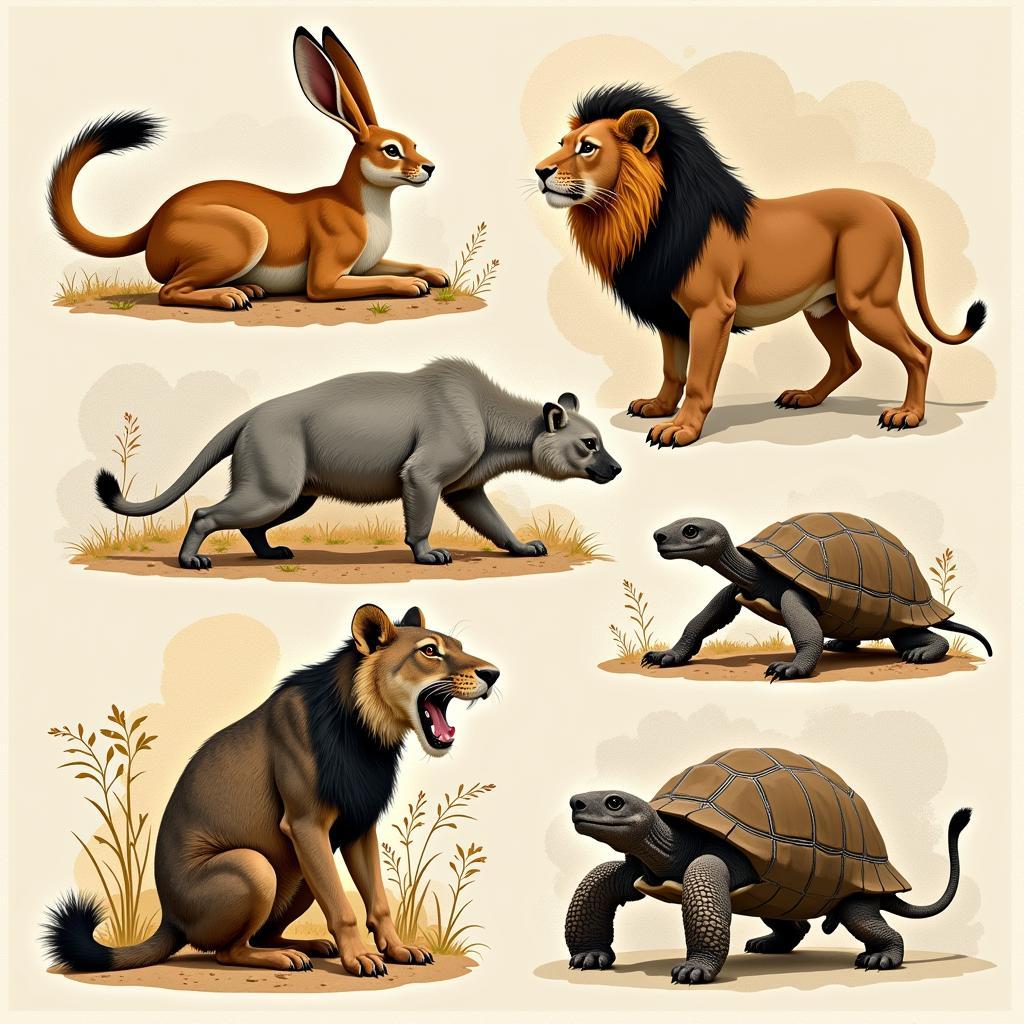African Ancient People: Unmasking the Cradle of Humankind
Africa, the cradle of humankind, holds within its landscapes the secrets of our origins. The history of African Ancient People is a tapestry woven with threads of innovation, resilience, and cultural richness that continues to shape the world we know today.
Stepping Back in Time: Early Hominids and the Dawn of Humanity
Our journey begins millions of years ago, in the Great Rift Valley of East Africa. Here, the discovery of fossilized remains like “Lucy,” the famous Australopithecus afarensis, provides irrefutable evidence that the first hominids, our early ancestors, walked these lands. These ancient people, adapting to the challenges of a changing environment, developed bipedalism and laid the foundation for the human lineage.
The Rise of Homo Sapiens and the Spread of Innovation
As time progressed, new hominid species emerged, including Homo habilis, known for their tool-making abilities, and Homo erectus, who mastered fire and ventured out of Africa, spreading across the globe. Finally, around 300,000 years ago, Homo sapiens, our direct ancestors, appeared on the African scene.
The Flourishing of African Civilizations: Kingdoms and Empires
While the story of early hominids is fascinating, African ancient people went far beyond survival. They built civilizations that rivalled those in other parts of the ancient world. The ancient Egyptians, with their monumental pyramids and complex hieroglyphic writing system, left an indelible mark on history.
Further south, the Kingdom of Kush, in present-day Sudan, flourished as a center of trade and iron production. The Nok culture of West Africa, known for its terracotta sculptures, showcased artistic prowess as early as 500 BCE.
Trade, Innovation, and Cultural Exchange
These ancient African civilizations were not isolated. Trade routes crisscrossed the continent, facilitating the exchange of goods, ideas, and technologies. The Trans-Saharan trade route, connecting North Africa to the regions south of the Sahara, played a crucial role in the development of powerful empires like Ghana, Mali, and Songhai. Gold, salt, ivory, and enslaved people moved along these routes, fueling economic growth and cultural exchange.
The Legacy of African Ancient People: Enduring Traditions and Global Influence
The legacy of African ancient people is not confined to the past. Their contributions to art, music, language, agriculture, and philosophy have left an enduring impact on the world. From the intricate african braid hairstyle for men to the rhythmic beats of traditional music, from the vibrant colors of african indigo cloth to the stories told around the fire, the echoes of ancient traditions resonate in contemporary African culture.
A Global Tapestry Woven with African Threads
The influence of African ancient people extends far beyond the continent. The forced migration of Africans during the transatlantic slave trade brought their knowledge, skills, and cultural heritage to the Americas, shaping the development of new societies.
“The understanding of human history is incomplete without a deep appreciation for the contributions of African ancient people,” says Dr. Abena Asante, a renowned historian specializing in African civilizations. “Their stories challenge conventional narratives and enrich our understanding of our shared past.”
Frequently Asked Questions about African Ancient People
1. What is the oldest known hominid fossil found in Africa?
The oldest known hominid fossil discovered in Africa is “Sahelanthropus tchadensis,” dating back approximately 7 million years.
2. What are some of the major ancient civilizations of Africa?
Some of the major ancient civilizations of Africa include the ancient Egyptians, the Kingdom of Kush, the Aksumite Empire, the Ghana Empire, the Mali Empire, and the Songhai Empire.
3. What were some of the significant achievements of African ancient people?
African ancient people made significant advancements in various fields, including mathematics, astronomy, medicine, agriculture, art, architecture, and metallurgy. They developed complex social structures, political systems, and religious beliefs.
Exploring Further:
- To learn more about the fascinating history of the african harp, check out our dedicated article.
- Discover the beauty and symbolism of the traditional african chair in our comprehensive guide.
The study of African ancient people is a continuous journey of discovery. As archaeologists uncover new artifacts and researchers delve deeper into the past, we gain a richer understanding of the complex and vibrant tapestry of African history. These stories of resilience, innovation, and cultural brilliance serve as a reminder of our shared humanity and the enduring legacy of the cradle of humankind.
If you need any assistance, please contact us at Phone Number: +255768904061, Email: kaka.mag@gmail.com Or visit us at: Mbarali DC Mawindi, Kangaga, Tanzania. We have a 24/7 customer support team.


